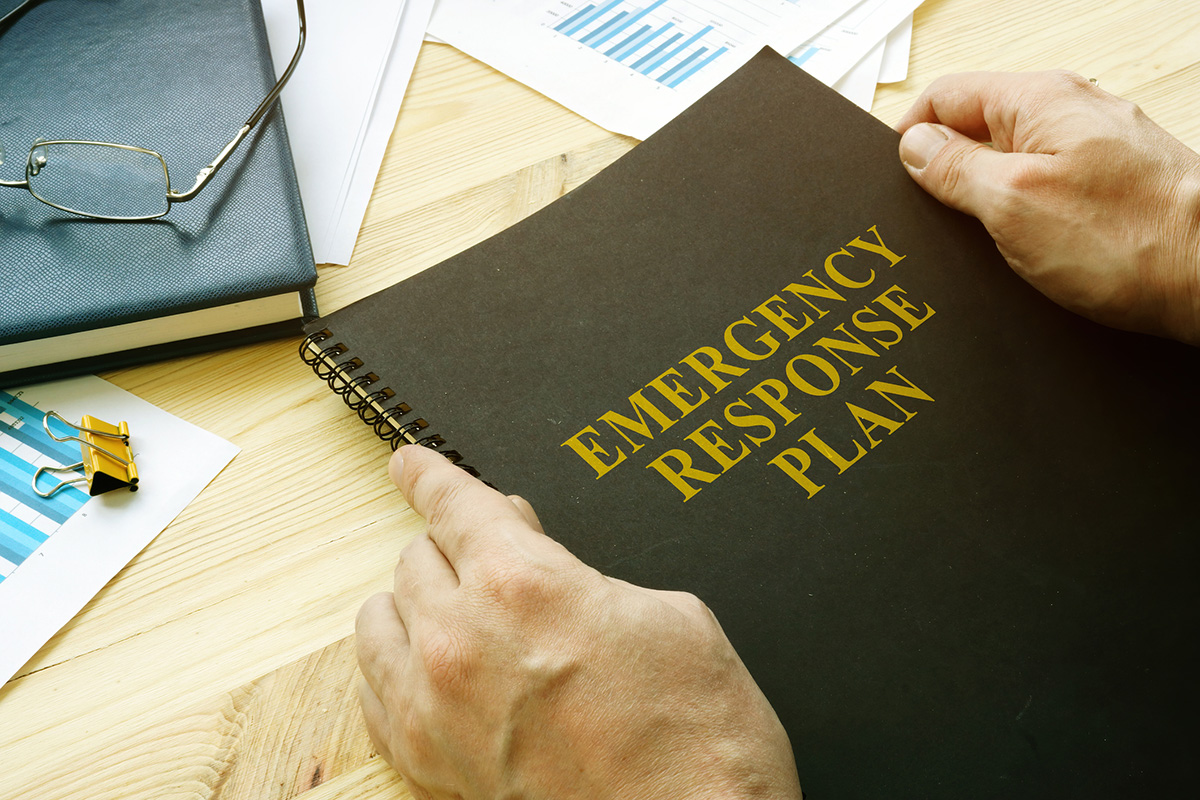Individuals who are looking to start or switch careers will find plenty of opportunities in the health care industry. Health care administration careers are in high demand, with the Bureau of Labor Statistics projecting employment for health and medical services managers to increase by 32% from 2020 to 2030, with 139,600 jobs added.
Health care administration job opportunities include disaster planning and preparedness positions in hospitals and other medical settings. In this article, we explore why emergency preparedness is important in health care, what emergency managers do, and what education and training is required for these positions.
What Is Health Care Emergency Management?
Planning for disasters and emergencies is a priority for all health care organizations. Without a contingency plan, loss of life and facility liabilities can result. In larger facilities, a disaster manager or coordinator is typically hired to fill this role and may lead a team; in smaller facilities, one employee may be assigned the role and may be solely responsible for planning.
Hospitals and other health facilities have adopted the National Incident Management System objectives and the Hospital Incident Command System to help guide their preparedness and response efforts. This ensures a consistency of language and approaches across the nation and helps eliminate barriers when mutual support is required. Compliance also helps hospitals and other health care organizations ensure they will be able to participate in disaster relief programs if an emergency is formally declared.
What Do Health Care Emergency Managers Do?
A typical day in the life of an emergency manager can be hard to define, as their roles can change quickly when they go from planning mode to crisis mode. While responsibilities vary by organization, most emergency managers are guided by an emergency operations plan. These plans typically start with an analysis and prioritization of local and regional hazards and vulnerabilities, and then they lay out sub-plans for responses based on their organization’s assets, strengths, weaknesses and community resources.
During their planning process, health care emergency managers identify potential scenarios and prioritize them through a risk assessment process. For instance, facilities located in the South are more susceptible to hurricanes, whereas ones along the Pacific coast would be more prone to experience earthquakes.
Careers in emergency management typically require a wide array of skills, each vital to planning successful hospital preparedness for emergencies. Typical tasks may include:
- Communicating with internal departments and external agencies.
- Ensuring compliance with accrediting standards and licensure, along with other regulatory requirements.
- Managing staff education, training and exercises.
- Managing their Hospital Preparedness Program and other grant responsibilities and funds.
- Overseeing business continuity planning to enable operations to continue in the event of a severe disruption.
- Preparing meeting documentation and maintaining minutes.
- Reviewing data to identify potential risks, priorities and opportunities for improvement.
Additionally, emergency management professionals are expected to stay informed about changes within their industry.
How to Become a Health Care Emergency Manager
According to the BLS, the typical requirements to become an emergency management director include a bachelor’s degree and many years of work experience. In addition to previous positions in health care, work experience in fields like law enforcement, firefighting and emergency medical services – and even military experience – can help prepare you for the kinds of stressful and time-sensitive situations you’ll encounter in emergency management.
*Certifications may also be required, or they can at least give you an edge over other candidates at a minimum. Common credentials for health care emergency management include the Associate Emergency Manager® and Certified Emergency Manager® from the International Association of Emergency Managers, plus any state-level emergency management certifications that apply to your local area.
When interviewing for positions in health care emergency management, hiring managers will be looking for qualities like:
- Collaboration skills.
- Communication skills.
- Critical thinking.
- Time management and organizational skills.
- Working well under pressure.
Getting Started
The need for skilled and knowledgeable emergency and disaster preparedness professionals in health care is here to stay. Through natural disasters, pandemics, terrorist attacks and more, we’ve learned that emergency preparedness is a critical component to saving lives and ensuring the continuity of health care services.
Professionals in health care who are interested in becoming prepared to examine current issues affecting community EMS systems may be interested in pursuing a B.S. in Health Care Administration with a concentration in Emergency Medical Services. Emergency management professionals looking to advance their careers may be interested in pursuing a master’s degree, such as the M.S. in emergency services management here at Columbia Southern University. For more information about our online degree programs in emergency management, visit our website.
*These programs are not eligible for Federal Student Aid, military tuition assistance, VA funding or Learning Partner discounts.
Multiple factors, including prior experience, geography and degree field, affect career outcomes. CSU does not guarantee a job, promotion, salary increase, eligibility for a position, or other career growth.





